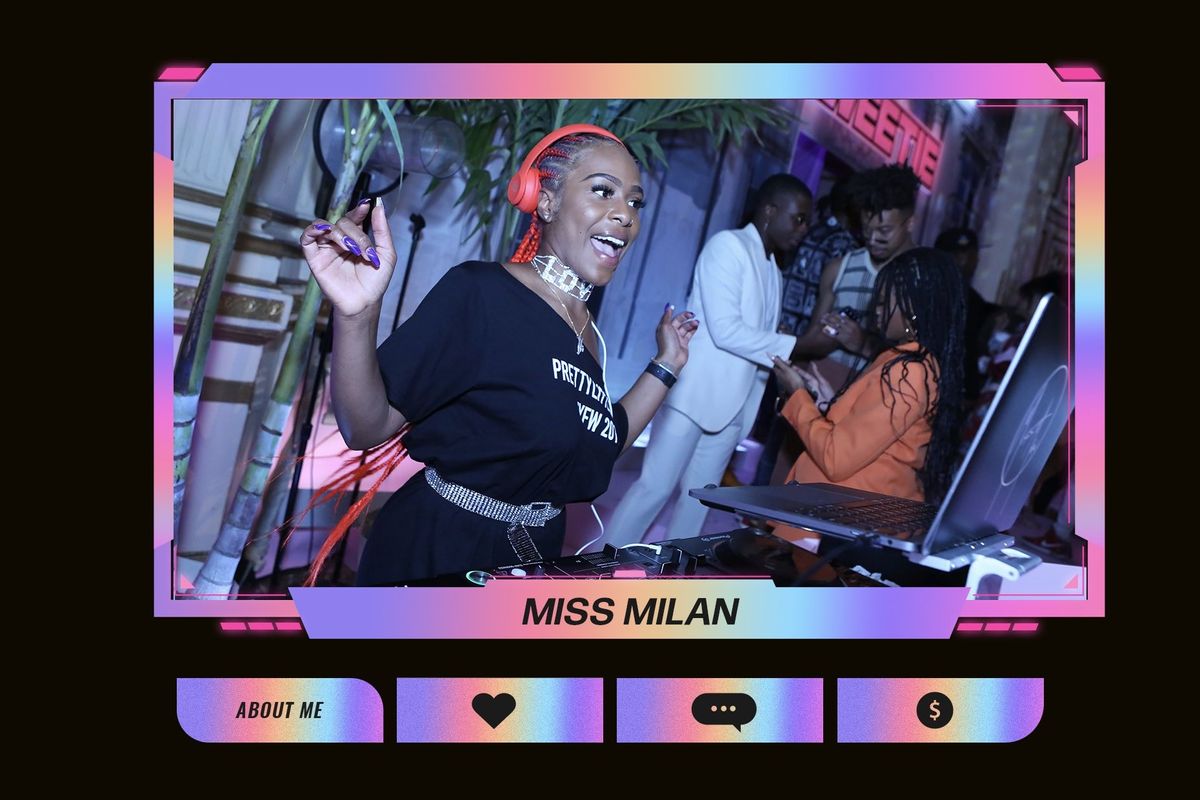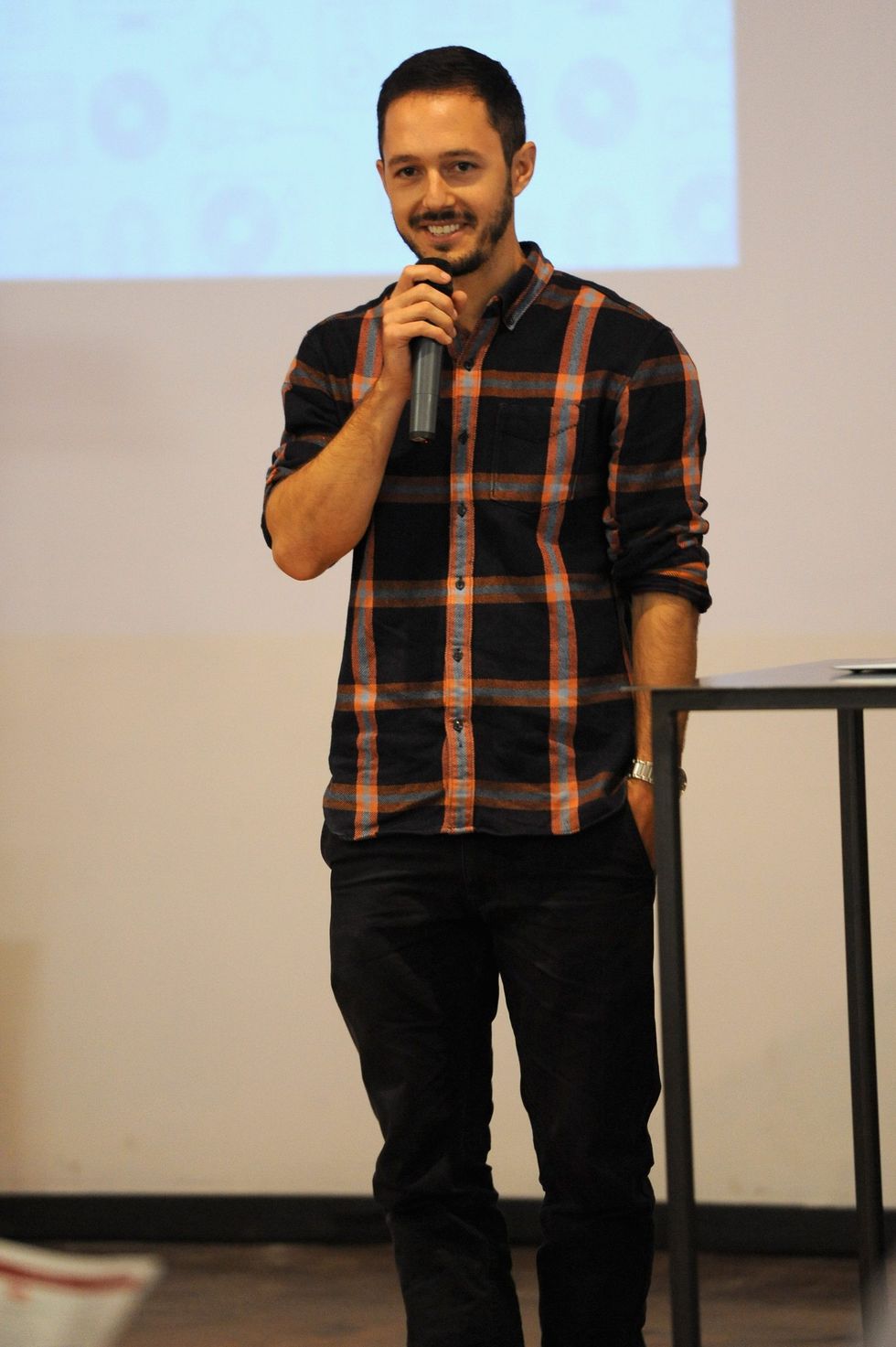
Miss Millan graphic
Photo Credit: Photo by Sean Drakes/Getty Images Graphic: Okayplayer
To continue reading
Create a free account or sign in to unlock more free articles.
By continuing, you agree to the Terms of Service and acknowledge our Privacy Policy
Register
The content is free, but you must be subscribed to Okayplayer to continue reading.
THANK YOU FOR SUBSCRIBING
Join our newsletter family to stay tapped into the latest in Hip Hop culture!
Login
To continue reading login to your account.
Forgot your password?
Please enter the email address you use for your account so we can send you a link to reset your password:

The World Health Organization (WHO)declared COVID-19 a pandemicon March 11. It was a moment that incited global lockdowns and social distancing measures, causing the world to make a digital shift. As our access to human interaction has been limited, people have searched for alternatives utilizing various platforms, with Instagram Live being a leading option. Many people have found a sense of normalcy in Instagram’s live feature, which debuted in 2016. During the pandemic, it has shown to be a viable platform, and as served as the base for Swizz Beatz and Timbaland'sVerzuz, Tory Lanez's "Quarantine Radio," and DJ D-Nice's "Club Quarantine." For the most part, these celebs have been able to bypass Instagram Live’s restrictions, but that isn’t the reality for people without their acclaimed status — particularly DJs.
The stay-at-home orders have put a strain on DJs as they have been trying to find their footing and remain creative and sane amid the pandemic. Pretty much all gigs are a no go for them right now including clubs, parties, and festivals.
“I knew that me and other DJs like me were going to be losing out on gigs and losing out residences or annual events that we’ve had. But then also in knowing a lot of the more prestigious and established DJs, I realized that it wasn’t just a small fry thing — that everybody literally suffered,” Brooklyn-based DJ Cory Townes said. “The same way I lost residences and gigs, some of the more established DJs lost out on music festivals and might’ve lost out on touring opportunities.”
Among those currently taking a hit as tours have been postponed or canceled is Miss Milan, the official DJ for Saweetie.
“As a tour DJ, it’s literally like a big big transition. We went from a whole list of gigs that we were supposed to do this year to certain things being cut off and canceled,” the Brooklyn/Queens-based DJ said. “For me, this is my livelihood, this is my passion, this is my everything. So it does kind of put a damper on our physical dreams because we can’t be out in the streets. Even going on tour out of the country, it was something that we were all looking forward to, but the pivot point to it is that we now have to become the hustlers that we once were.”
Most DJs don’t quite fit the status that grants them a pass on Instagram’s restrictions on content. This means that their IG lives are often timed out after 60 minutes and are abruptly cut for playing music. Adding to those limitations, Instagram introduced a new guideline that would limit playing a song to 90 seconds in order for Instagram to uphold their contracts with record labels and music distributors.
Prior to the pandemic, Townes said he had never done a live stream set, and he wasn’t too fond of it especially when Instagram’s restrictions interrupted a digital fundraiser he was a part of. In late May, Townes took to Twitter to voice his frustrations with Instagram while praising other platforms like Twitch as a better space for him and his peers, writing: “I'm someone who's been incredibly entertained by the Verzuz series on Instagram. That said, IG Live is the absolute worst platform to DJ on.”
\u201cI'm someone who's been incredibly entertained by the Versuz series on Instagram. \n\nThat said, IG Live is the absolute worst platform to DJ on.\u201d— Boul. (@Boul.) 1590030575
“I think there’s a lot of figuring out that needs to be done. I felt the frustration from other DJs who felt like the rules didn’t apply to everybody, but now we’re starting to see D-Nice and Questlove getting flagged for the same things that we would,” Townes said. “It speaks to a larger issue because the easy answer is to take your talents elsewhere, but a lot of DJs lean into Instagram because that’s where a lot of their followers are and it’s an easy transition.”
During the quarantine, Townes developed his platform FNCTN Worldwide in partnership with Twitch, where he and various emerging and established DJs spin and connect with their fans.
AMH, a Philadelphia-based DJ, producer and half of the U+Me+RnB party, informed his followers early on that he wouldn’t be going live as often during the quarantine. Although he has been able to evade some of Instagram’s new restrictions by transitioning between songs that could potentially be flagged, as well as playing his own remixes during sets, he still has to deal with the platform’s other restrictions and trying to retain viewers as a result of his live streams getting flagged.
“I want to say DJ’ing online has really happened in the last like five years, and that’s primarily from people using Youtube,” he said. “We’ve never seen anything like how IG Live is and Twitch — Twitch is amazing. Being able to be like, ‘OK everybody, I’m going live,’ and then sit back and DJ.”
“Of course, we can bring the energy from what we’re doing — that’s a part of my skill set,” he continued. “But trying to bring it online is hard as hell when it’s cutting us off and the energy is taken away just like that.” He also shared positive sentiments about Twitch, noting that he would prefer to live stream with a bigger setup than just his phone or his laptop. A couple of months ago, AMH joined fellow Philly DJ Bobby Flowers for his party HIPS, a celebration of Black music that took place on Twitch to raise money for the Minnesota Freedom Fund. The set was equipped with a green screen and visuals.
Milan has also taken her talents to Twitch.
“I think we all started off with IG Live, just because D-Nice made it such a popular thing,” she said. “Don’t get me wrong — DJ’ing streaming...it’s not something that’s fairly new. It’s just more popularized now considering that we are in a pandemic.”
According to Milan, AMH, and Townes, the only pushback is getting their followers to navigate from their Instagram to another platform.
Another common frustration among DJs is that they have to adhere to these Instagram guidelines even though there is no monetary gain involved, having to rely on donations from their followers whenever they stream.
“This is something that they weren’t expecting so it’s a whole new lane for them, in my opinion, to monetize off of,” Milan said. “You know everything has to become monetary at the end of the day for a lot of these big corporations. So seeing [D-Nice] go from 500 people to 100k, it’s like, “All right guys — the numbers are getting crazy, we gotta make a coin off of that.” For Milan, it was a slap in the face to see Instagram promoting live DJ sets while also cutting them off.
While the DJ community is still adjusting to the virtual shift and many states have entered reopening phases, some of them are returning to spin in public spaces. DJ Eye Q, an Austin-based DJ, is one of them. Prior to the pandemic, she had three weekly residencies, as well as her new party Island Soul, dedicated to Afrobeat, Dancehall, and R&B.
Eye Q recently started DJ’ing in public spaces and social distancing guidelines have noticeably changed the atmosphere for her.
“It gives me a little bit of fear to be out and still know there’s a virus going around. I don’t feel like people are really following the guidelines,” she said. “They’re in place, especially in Texas, but you can tell people aren’t following it because the numbers are going up like crazy.”
Eye Q has been wearing her mask while DJ’ing, although most party-goers have not. Also, guests are supposed to remain seated in some of the spaces she has DJ’d at, but many of them have taken to the dance floor although it’s discouraged.

During this time, DJs have essentially been navigating through trial and error, and there does seem to be one platform that is currently catering to all of their needs — Mixcloud. A music platform dedicated to connecting DJs, radio shows, festivals, and labels with their listeners, Mixcloud was created by co-founders Nico Perez, Nikhil Shah, Matthew Clayton, and Sam Cooke 10 years ago to fill that void. As of April, the audio culture site launched it’s Mixcloud Live feature due to the increased demand for livestream capabilities during the quarantine. Perez, who is also the CEO of Mixcloud, said they spent a lot of time early on in their development figuring out copyright issues, and acquiring the proper licenses that would allow radio shows to play artists’ music.
“We didn’t realize how many people were having issues and takedowns with Facebook, Instagram, Twitch, and all of these other platforms that aren’t licensed in the same way,” he said. “We did deals with all of the major labels, major publishers, collection societies and major rights holders, and part of those deals means that every single stream that happens on Mixcloud gets audio fingerprinted.”
Perez described the licensing process as akin to Shazam, and explained that the stream “goes through an algorithm and then we track, report, and payout royalties based on everything that gets listened to on a granular individual track level.” Another beneficial component is the MixCloud Select account that provides an option for DJs to monetize through a channel-based subscription, with profit being split among the DJs and rights holders. The subscription would provide fans with the feeling of exclusivity, allowing them to be a part of the inner circle of DJs who keep us all moving.
At this moment, it is important to recognize the power of the DJ. While the world has seemingly stopped, DJs have the power to bring people joy and relieve them of their problems — even if only for a moment. But it’s important that they have the proper platform to share their craft not just for us but themselves, while making money to survive.
__